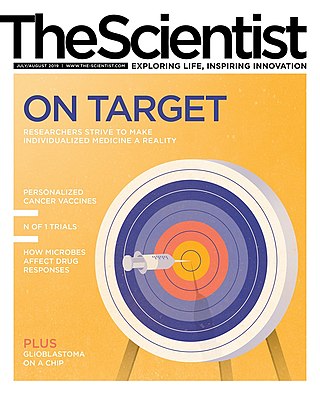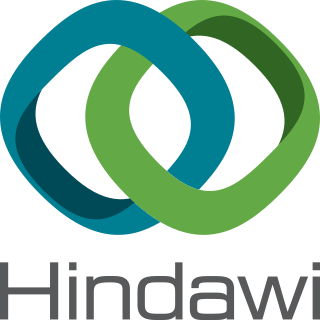BioMed Central (BMC) is a United Kingdom-based, for-profit scientific open access publisher that produces over 250 scientific journals. All its journals are published online only. BioMed Central describes itself as the first and largest open access science publisher. It was founded in 2000 and has been owned by Springer, now Springer Nature, since 2008.
Richard Smith CBE FMedSci is a British medical doctor, editor, and businessman.

Taylor & Francis Group is an international company originating in England that publishes books and academic journals. Its parts include Taylor & Francis, Routledge, F1000 Research and Dovepress. It is a division of Informa plc, a United Kingdom–based publisher and conference company.

The Wellcome Trust is a charitable foundation focused on health research based in London, in the United Kingdom. It was established in 1936 with legacies from the pharmaceutical magnate Henry Wellcome to fund research to improve human and animal health. The aim of the Trust is to "support science to solve the urgent health challenges facing everyone." It had a financial endowment of £29.1 billion in 2020, making it the fourth wealthiest charitable foundation in the world. In 2012, the Wellcome Trust was described by the Financial Times as the United Kingdom's largest provider of non-governmental funding for scientific research, and one of the largest providers in the world. According to their annual report, the Wellcome Trust spent GBP £1.1Bn on charitable activities across their 2019/2020 financial year. According to the OECD, the Wellcome Trust's financing for 2019 development increased by 22% to US$327 million.
F1000 is an open research publisher for scientists, scholars, and clinical researchers. F1000 offers a different research evaluation service from standard academic journals by offering peer-review after, rather than before, publishing a research article. Initially, F1000 was named after the 1,000 faculty members that performed peer-reviews, but over time F1000 expanded to more than 8,000 members. When F1000 was acquired by Taylor & Francis Group in January 2020, it kept the publishing services. F1000Prime and F1000 Workspace were acquired by different brands.
Springer Science+Business Media, commonly known as Springer, is a German multinational publishing company of books, e-books and peer-reviewed journals in science, humanities, technical and medical (STM) publishing.

The Scientist is a professional magazine intended for life scientists. The Scientist covers recently published research papers, current research, techniques, and other columns and reports of interest to its readers.

Wiley-Blackwell is an international scientific, technical, medical, and scholarly publishing business of John Wiley & Sons. It was formed by the merger of John Wiley & Sons Global Scientific, Technical, and Medical business with Blackwell Publishing in 2007.

Hindawi is a publisher of peer-reviewed, open access, scientific journals currently active in scientific, technical, and medical (STM) literature. It was founded in 1997 in Cairo, Egypt, but purchased in 2021 by John Wiley & Sons, a publishing company based in the United States. The company has its headquarters in London, an office in Cairo, and a virtual office address in New York City.

Robert T. Gerlai is a Canadian behaviour geneticist.
Open peer review is the various possible modifications of the traditional scholarly peer review process. The three most common modifications to which the term is applied are:
- Open identities: Authors and reviewers are aware of each other's identity.
- Open reports: Review reports are published alongside the relevant article.
- Open participation: The wider community are able to contribute to the review process.
Acupuncture in Medicine is a bi-monthly peer-reviewed medical journal covering aspects of acupuncture and related techniques. The journal was established in 1982 by the British Medical Acupuncture Society, but was published by the BMJ Group on behalf of the Society from 2008 to 2018 and SAGE Publishing from 2019. The current editor-in-chief is David Coggin-Carr.
Peerage of Science was a scientific peer review service aimed at improving "the current peer review system and make the peer review process more scientific, fair and transparent". The company was founded in 2011 by the scientists Janne Kotiaho, Mikko Mönkkönen, and Janne-Tuomas Seppänen in Jyväskylä, Finland. Initially it focused on the areas of "ecology, evolutionary biology and conservation biology", but within 2 years it expanded to other areas of science.
BMJ Open is a peer-reviewed open access medical journal that is dedicated to publishing medical research from all disciplines and therapeutic areas. It is published by BMJ and considers all research study types, from protocols through phase I trials to meta-analyses, including small, specialist studies, and negative studies. Publishing procedures are built around fully open peer review and continuous publication, publishing research online as soon as the article is ready. BMJ Open aims to promote transparency in the publication process by publishing reviewer reports and previous versions of manuscripts as prepublication histories. The editor-in-chief is Adrian Aldcroft.
BioMed Research International is a peer-reviewed open access scientific journal covering all aspects of biomedical sciences. It was established in 2001 as the Journal of Biomedicine and Biotechnology with Abdelali Haoudi as first editor-in-chief. The journal obtained its current title in 2013 and is published by Hindawi Publishing Corporation.
Current Opinion is a series of medical journals published by Wolters Kluwer imprint Lippincott Williams & Wilkins. Wolters Kluwer acquired the journals from the Thomson Organisation in 1997. Each of these journals publishes editorials and reviews within one of a number of medical disciplines.
Springer Nature or the Springer Nature Group is a German-British academic publishing company created by the May 2015 merger of Springer Science+Business Media and Holtzbrinck Publishing Group's Nature Publishing Group, Palgrave Macmillan, and Macmillan Education.
B. Brett Finlay, is a Canadian microbiologist well known for his contributions to understanding how microbes cause disease in people and developing new tools for fighting infections, as well as the role the microbiota plays in human health and disease. Science.ca describes him as one of the world's foremost experts on the molecular understanding of the ways bacteria infect their hosts. He also led the SARS Accelerated Vaccine Initiative (SAVI) and developed vaccines to SARS and a bovine vaccine to E. coli O157:H7. His current research interests focus on pathogenic E. coli and Salmonella pathogenicity, and the role of the microbiota in infections, asthma, and malnutrition. He is currently the UBC Peter Wall Distinguished Professor and a Professor in the Michael Smith Laboratories, Microbiology and Immunology, and Biochemistry and Molecular Biology, and Co-director and Senior Fellow for the CIFAR Humans and Microbes program. He is also co-author of the book Let Them Eat Dirt: Saving Your Child from an Oversanitized World and The Whole-Body Microbiome: How to Harness Microbes - Inside and Out - For Lifelong Health. Finlay is the author of over 500 publications in peer-reviewed journals and served as editor of several professional publications for many years.

The idea and practise of providing free online access to journal articles began at least a decade before the term "open access" was formally coined. Computer scientists had been self-archiving in anonymous ftp archives since the 1970s and physicists had been self-archiving in arXiv since the 1990s. The Subversive Proposal to generalize the practice was posted in 1994.
medRxiv is an Internet site distributing unpublished eprints about health sciences. It distributes complete but unpublished manuscripts in the areas of medicine, clinical research, and related health sciences without charge to the reader. Such manuscripts have yet to undergo peer review and the site notes that preliminary status and that the manuscripts should not be considered for clinical application, nor relied upon for news reporting as established information.







